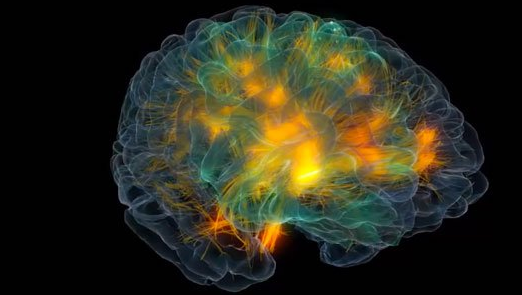Neurobic
If routines put the brain hungry for new things, Neurobic is there to wake it up. The brain is the opposite of everything around us, especially new technologies. The more we use our brain, the less it wears out…
A new way of life, fun and sensual, which stimulates neurons. Developed by Lawrence C. Katz, a professor of neurobiology at the Duke University Medical Center in North Carolina, USA, Neurobic can be exercised at any time of the day, alone or with family, friends and even at work…
We all know the song: what's his name already, the actor who plays James Bond? Or again one morning, we realize that we have forgotten most of the text read the day before… If such forgetfulness is common, especially from the age of 40, this is not a reason to let go, on the contrary. Our habits and our hours spent in front of the small screens would prevent our neurons from developing all their assets.
By watching television or surfing the Internet, information only reaches us through the sense of sight, possibly, but very far away, through those of hearing and touching the keyboard or electronic mouse. Taste and smell, said to be more effective in boosting memory, remain unused.
Neurobic voluntarily creates unexpected events to stimulate brain activity by mobilizing the five senses and especially the emotional.
Based on recent discoveries in neurology, neurobic is a new form of exercise to keep your brain agile and healthy. The mental decline is not only due to the death of neurons, but also to the scarcity of the number and complexity of dendrites, these ramifications of nerve cells that receive and transmit information. Recent scientific work has shown that dendrites can grow at any age.
Neurobic forces nerve cells to produce natural nutrients called "neurotrophins", which can dramatically increase the size and complexity of dendrites, says Lawrence C. Katz, who has worked primarily with associations created in the brain through the senses rarely used. For example, to better remember the name of a person presented to you, he advises to retain contact with his hand: soft? sweaty? closed ? Or to smell it, a more difficult task. The five senses, aided by the emotional, constitute the origin of associations of ideas which will allow memorization. Each of the five senses refers to its own regions in the cortex.
The connections related to touch and smell are thus gathered in different areas from those of other senses. The hippocampus decides what information will be placed in long-term memory. It is assumed that the hippocampus' decision to store a memory depends on two factors, depending on whether the information involves an emotional imprint or whether it relates to something we already know. The brain will therefore make more associations if we use a maximum of meaning.
A new way of life, fun and sensual, which stimulates neurons. Developed by Lawrence C. Katz, a professor of neurobiology at the Duke University Medical Center in North Carolina, USA, Neurobic can be exercised at any time of the day, alone or with family, friends and even at work…
We all know the song: what's his name already, the actor who plays James Bond? Or again one morning, we realize that we have forgotten most of the text read the day before… If such forgetfulness is common, especially from the age of 40, this is not a reason to let go, on the contrary. Our habits and our hours spent in front of the small screens would prevent our neurons from developing all their assets.
By watching television or surfing the Internet, information only reaches us through the sense of sight, possibly, but very far away, through those of hearing and touching the keyboard or electronic mouse. Taste and smell, said to be more effective in boosting memory, remain unused.
Neurobic voluntarily creates unexpected events to stimulate brain activity by mobilizing the five senses and especially the emotional.
Based on recent discoveries in neurology, neurobic is a new form of exercise to keep your brain agile and healthy. The mental decline is not only due to the death of neurons, but also to the scarcity of the number and complexity of dendrites, these ramifications of nerve cells that receive and transmit information. Recent scientific work has shown that dendrites can grow at any age.
Neurobic forces nerve cells to produce natural nutrients called "neurotrophins", which can dramatically increase the size and complexity of dendrites, says Lawrence C. Katz, who has worked primarily with associations created in the brain through the senses rarely used. For example, to better remember the name of a person presented to you, he advises to retain contact with his hand: soft? sweaty? closed ? Or to smell it, a more difficult task. The five senses, aided by the emotional, constitute the origin of associations of ideas which will allow memorization. Each of the five senses refers to its own regions in the cortex.
The connections related to touch and smell are thus gathered in different areas from those of other senses. The hippocampus decides what information will be placed in long-term memory. It is assumed that the hippocampus' decision to store a memory depends on two factors, depending on whether the information involves an emotional imprint or whether it relates to something we already know. The brain will therefore make more associations if we use a maximum of meaning.






